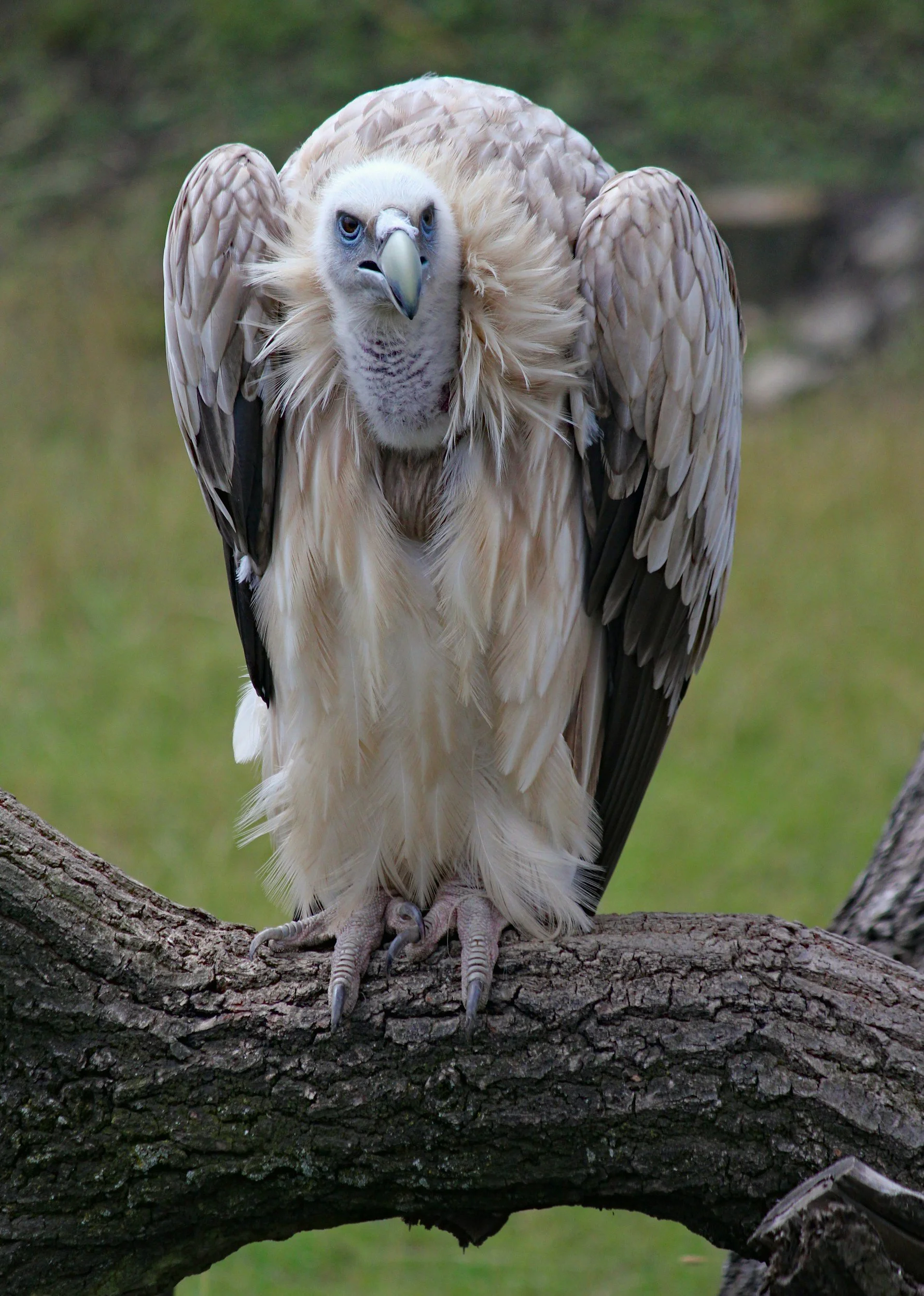Vultures
In my younger years, I thought vultures, or buzzards as some call them, were gross. I always saw them eating dead animals on the side of the road. But that all changed when I started working with them from a spiritual perspective. I now believe the biggest misconception is that vultures bring dark energy or signal death. This is far from the truth, and by the time you finish reading this article, you'll have a new appreciation for them.
When I first started volunteering at a raptor rescue, we had a black vulture that was being kept in one of our largest enclosures. This particular vulture was habituated to humans and way too comfortable around us. He had been caught and brought in after multiple reports that he frequently visited a park and actively approached picnickers asking for food. I remember walking into the enclosure to change his water and being greeted by a vulture that wanted my attention. He wanted to play with my shoelaces, followed me everywhere I went, and often grabbed my jeans to get my focus. He was like a dog—velcroed to my side and eager to play. I remember the way he looked at me, tilting his head to one side and watching me with one eye, clearly eager to follow my movements. That moment forever changed my perspective. He was so intelligent, so playful, and not gross at all.
Let’s explore the metaphysical meaning associated with these misunderstood raptors:
Transformation and Renewal
At the core of the vulture’s symbolism is transformation. As scavengers, vultures serve an essential ecological function by consuming carrion and stopping the spread of disease. This act of cleaning the earth of decay reflects the spiritual concept of renewal and rebirth. The vulture turns death into life by restoring balance to nature, reminding us of the cyclical and regenerative nature of life.
In spiritual traditions, the vulture's ability to thrive on death reflects the human capacity for renewal through difficult experiences. It shows that even during moments of despair or endings, there is a chance for growth, healing, and a fresh start. The vulture teaches us to accept transitions, no matter how uncomfortable they may seem.
Purification and Cleansing
The vulture’s role as a purifier goes beyond its ecological duties. Many cultures see this bird as a spiritual cleanser. In ancient Egyptian mythology, the vulture was connected to the goddess Nekhbet, who represented protection and purification. This link highlights the bird’s association with spiritual clarity and the clearing away of negative energies.
For those on a spiritual path, the vulture can serve as a guide that helps remove old habits, toxic influences, or emotional baggage. Its presence encourages us to let go of what no longer serves us, making room for new opportunities and wisdom.
Protection and Guardianship
The vulture has long been seen as a guardian and protector in different cultures. The ancient Egyptians admired the vulture as a maternal figure; its wings were believed to shield and safeguard. This maternal trait of the vulture represents watchfulness and care, indicating that they provide protection to those who seek it.
In spiritual symbolism, the vulture's sharp eyesight and ability to soar high above the ground serve as metaphors for vigilance and perspective. The bird reminds us that protection often comes from seeing the bigger picture and maintaining a heightened awareness of our surroundings.
Visionary Insight and Higher Perspective
The vulture soars at high altitudes, gliding and circling on thermal currents. In many indigenous traditions, birds and raptors are viewed as messengers between the earthly realm and the Divine, and the vulture’s specifically elevated flights make them a powerful symbol of visionary insight. This connection to higher realms suggests that the vulture encourages spiritual seekers to rise above worries and gain a wider perspective on life. Its message is one of clarity, urging individuals to see through illusions and focus on the truth.
The Importance of Family & Community
Vultures are social animals, with many species living and feeding in groups or roosts. These communal roosts offer safety, warmth, and opportunities for social interaction. Raptors in the roost communicate through body language and vocalizations, maintaining social harmony and strengthening group bonds. This spirit of unity serves as a powerful metaphor for the family or community, which flourishes through togetherness and mutual support.
In the spiritual realm, the vulture symbolizes the strength and resilience that come from collective effort and shared purpose. The communal life of vultures teaches us to prioritize connection and teamwork. Just as vultures work together to survive, families are encouraged to promote open communication, understanding, and cooperation to create a harmonious environment where every member feels valued and supported.
Curious to learn more? If you haven’t already, join my newsletter for free insights delivered straight to your inbox. We’ll update you whenever a new article or video is published! And did we mention–it’s free?
Plus, all new subscribers get a free copy of my E-Book: Red Flag, Green Flag: A Rookie’s Guidebook to Digital Discernment. You won’t want to miss this one. I cover all the ways to spot the real deals from the fakes as you navigate your spiritual journey!
~ Noel (Spiritual Rookies)


